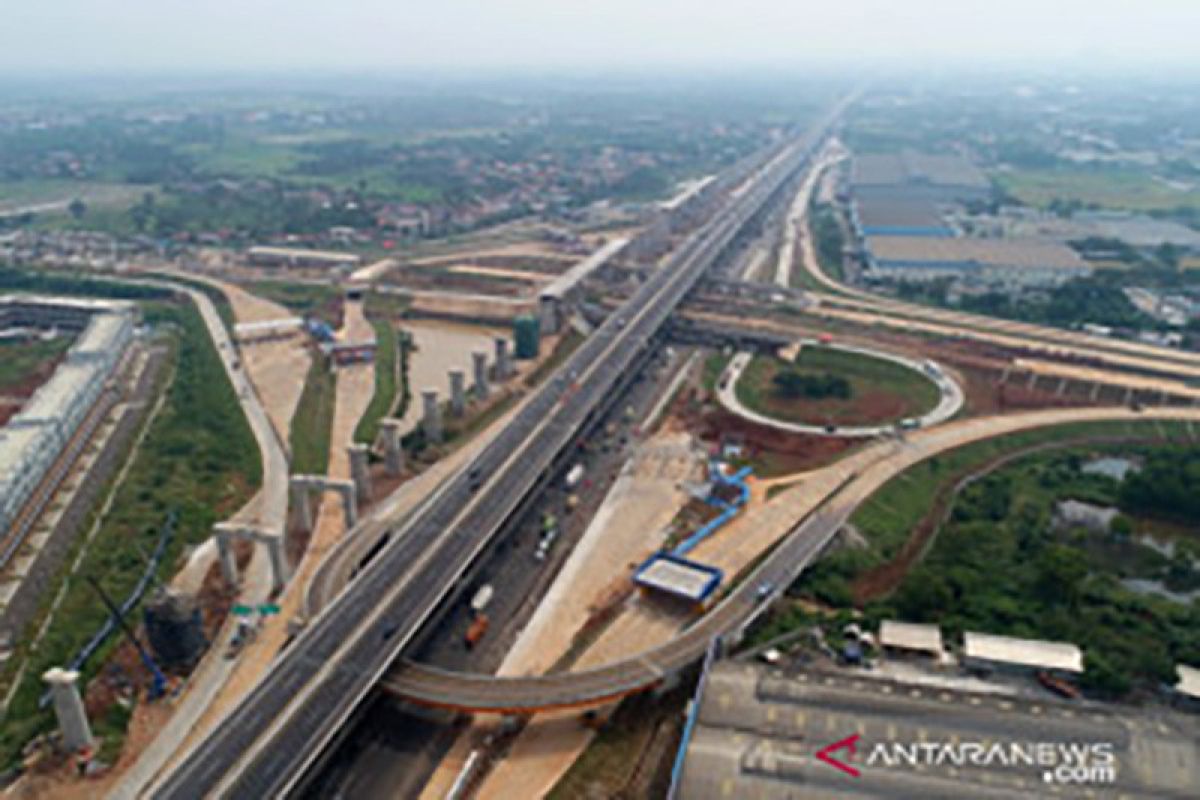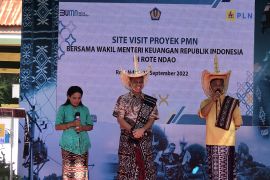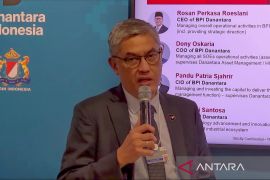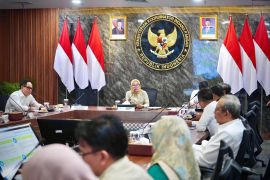Moreover, maintaining the projects is also their public service obligation. It distinguishes SOEs from private enterprises.Jakarta (ANTARA) - The government and the House of Representatives (DPR) have decided to provide Rp72.44-trillion in State Equity Participation (PMN) to 12 state-owned enterprises (SOEs) in 2022.
The attempt is aimed at supporting post-pandemic national economic recovery by supporting running projects, especially those related to public service obligations – infrastructure construction, logistics costs reduction, as well as electricity and housing procurement.
Marwan Jafar, House member of Commission VI, has called for the budget to be realized soon. He said the PMN provision would support the handling of COVID-19 and drive the growth of the national economy by absorbing labour, especially in strategic areas.
However, the Finance Ministry needs to consider the allocation carefully as several SOEs might collapse if they do not get adequate budget, the house member emphasized.
Furthermore, the SOEs Minister, Erick Thohir, noted that PMN is one of the crucial instruments needed by SOEs to fulfill their public service obligations as they use 81 percent of the provision for services. Meanwhile, only 6.9 percent of PMN is used for restructuring, he said.
The 12 SOEs that will receive the PMN are highway construction, development, and service provision company PT Hutama Karya (Persero), which will get Rp31.35 trillion for the construction of the Trans Sumatra Toll Road and newly established aviation and tourism holding PT Aviasi Pariwisata Indonesia (Persero), which will receive Rp9.318 trillion for capital and restructuring as well as the construction of the Mandalika project.
Meanwhile, electricity corporation PT Perusahaan Listrik Negara (Persero) will get Rp8.231 trillion for transmission substation and rural electricity; PT Bank Negara Indonesia (Persero) Tbk will receive Rp7 trillion for strengthening its Tier 1 capital and capital adequacy ratio; train service company PT Kereta Api Indonesia (Persero) will get Rp4.1 trillion for the Jakarta-Bandung fast train project; commercial and residential building construction enterprise PT Waskita Karya (Persero) will get Rp3 trillion for capital strengthening and restructuring; while insurance holding Indonesia Financial Group will get Rp2 trillion for restructuring PT Asuransi Jiwasraya (Persero).
Moreover, the government will also allocate Rp2 trillion for construction company PT Adhi Karya Tbk’s Solo-Yogyakarta and Yogyakarta-Bawen highway and Karian-Serpong drinking water supply system projects; Rp2 trillion for Perum Perumnas’ low- and middle-income housing; Rp2 trillion for PT Bank Tabungan Negara (Persero) Tbk’s Tier 1 capital and capital adequacy ratio strengthening; Rp1.2 trillion for agroindustry enterprise PT Rajawali Nusantara Indonesia (Persero)’s food industry; and, Rp250 billion for bus service corporation DAMRI’s capital strengthening and fleet provision.
Related news: BRI to become holding company of Pawnshop, PNM in September 2021
The minister said he expected the additional capital to help the enterprises’ business transformation so they can improve their performance and earn more income.
He also noted that the amount of PMN given to the SOEs was much smaller than the corporations’ contributions to the state in the form of taxes, dividends, and non-tax state revenues.
In the last 10 years, SOEs have contributed Rp3,295 trillion to the state's coffers -- Rp1,872 trillion in the form of taxes; Rp388 trillion in the form of dividends; and, Rp1,035 trillion in the form of non-tax revenues, Thohir informed. Meanwhile, the government has only provided Rp147 trillion PMN, or only about 4 percent of the total income generated during the period, he noted.
Even at the beginning of the pandemic last year, the SOEs provided Rp45 trillion in dividends, he said. However, the figure showed a decline from 2019, when dividends were recorded at Rp51 trillion, he added.
Five SOEs contributed the most dividends to the state in 2020 -- PT Bank Rakyat Indonesia (Persero) Tbk (26.4 percent), PT Bank Mandiri (Persero) Tbk (22.2 percent), PT Pertamina (Persero) (19.1 percent), PT Telkom Indonesia (Persero) Tbk (17.8 percent), and PT Bank Negara Indonesia (Persero) Tbk (5.2 percent), Thohir revealed.
The companies also provided Rp86 trillion in non-tax state revenues in 2020 from royalty payments, oil and gas fees, port service fees, among others, he said.
"Moreover, maintaining the projects is also their public service obligation. It distinguishes SOEs from private enterprises," the minister added.
Economic equity
Besides contributing to the state income, SOEs also provide economic equity through equitable infrastructure development.
At present, several sectors remain affected by uneven public facilities establishment. For instance, currently, Indonesian logistics cost is 24 percent of the total gross domestic product. The figure is 11 percent higher compared to the global average.
Furthermore, there are still many areas without electricity across the nation. Public housing and demand for home loans is also increasing in several regions.
Bina Nusantara University economist, Mochammad Doddy Ariefianto, said that the government has considered companies’ strategic role and the impact on the public while deciding on the PMN provision.
For instance, PMN provision for commercial SOEs is meant for their capital strengthening and future business potential, he noted.
Related news: PNM to issue bonds worth Rp1 tln
Meanwhile, the PMN for infrastructure enterprises is meant to help them to continue their projects, he said. It is aimed at improving public connectivity, which is part of their public service obligation to reduce logistics costs, he added.
Furthermore, costs will rise if construction work is stopped or delayed due to corrosion and damage to materials and abandoning of projects. Huge damage may force developers to start construction from scratch, he pointed out.
The PMN given to financial SOEs usually considers their future expansion, he said. For instance, PT Bank Negara Indonesia (Persero) Tbk will use the PMN to strengthen its overseas network to facilitate exports and imports activities of both corporations and micro, small, and medium enterprises, he added.
Meanwhile, PT Bank Tabungan Negara (Persero) will focus on accelerating home-ownership for the community. Thus, PMN provision to financial enterprises will help both the public and commercial sector, Ariefianto said. PT Bank Negara Indonesia (Persero) Tbk was one of the largest dividend contributors in 2020, he pointed out.
Hence, the provision is not simple since it carries a public and commercial mandate, in contrast to the private sector where the consideration is only profit and loss, he added.
Related news: PNM targets to channelize loans worth Rp14 trillion in 2019
Translator: Royke Sinaga, Uyu Liman
Editor: Suharto
Copyright © ANTARA 2021












